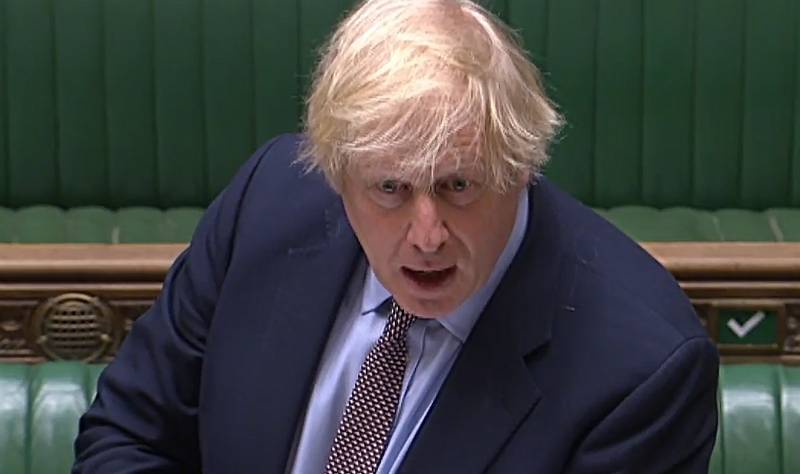Borris Johnson condemns George Floyd killing, calls for 'lawful' protests

Stay tuned with 24 News HD Android App

British Prime Minister Boris Johnson on Wednesday condemned the killing of George Floyd by police in the United States but declined to say whether he had spoken about the issue with key ally Donald Trump.
"I think what happened in the United States was appalling, inexcusable," Johnson told lawmakers in parliament, in his first public comment on the case. "We all saw it on our screens and I perfectly understand people's right to protest what took place," he added. "Obviously I also believe that protests should take place in a lawful and reasonable way."
But Johnson avoided answering questions as to whether he had raised the matter with the president, as Britain eyes a post-Brexit trade deal with the United States. Floyd, an unarmed African-American, died last week after a police officer in the US city Minneapolis knelt on his neck, an incident captured on video by a witness. The officer concerned has been charged with third-degree murder.
The killing has prompted waves of angry and sometimes violent protests in cities across the country and around the world.
Johnson's comments echoed those of British police chiefs Wednesday. "We stand alongside all those across the globe who are appalled and horrified by the way George Floyd lost his life," they said in a joint statement. "Justice and accountability should follow. We are also appalled to see the violence and damage that has happened in so many US cities since then."
The police chiefs appealed for people in Britain to "work with officers" as protests mount over Floyd's killing, just as a nationwide coronavirus lockdown is being eased.
'Challenging time'
Hundreds of people defied the virus restrictions and rallied in the British capital on Sunday, including outside the US embassy and in Hyde Park. The Metropolitan Police said it arrested 23 people, and issued a further 10 people with fines for breaching the rules.
Protests also took place in other cities, including Liverpool and Manchester, and more are expected on Wednesday. In their statement, police chiefs said they understood "people want to make their voices heard" but appealed to them "to work with officers at this challenging time".
"The right to lawful protest is a key part of any democracy, which UK police uphold and facilitate," they added. "But coronavirus remains a deadly disease and there are still restrictions in place to prevent its spread, which include not gathering outside in groups of more than six people."
Britain has its own fraught history of racism within policing, with a landmark 1999 report finding "institutional racism" within London's police force. The report was commissioned after the racist murder of a black teenager, Stephen Lawrence, at a bus stop in south London in 1993. The police investigation was marred by a catalogue of failures that saw no one convicted until 2012.
Despite programmes of reform, a 2015 study by the Runnymede Trust, an educational charity which aims to promote a successful multi-ethnic Britain, found "systemic and institutional racism persists" within British policing.
"Britain is no stranger to racialised police violence," it noted. "Black and minority ethnic people are disproportionately represented in the criminal justice system at every level, from arrests to stop and search, to imprisonment, to deaths in custody."
